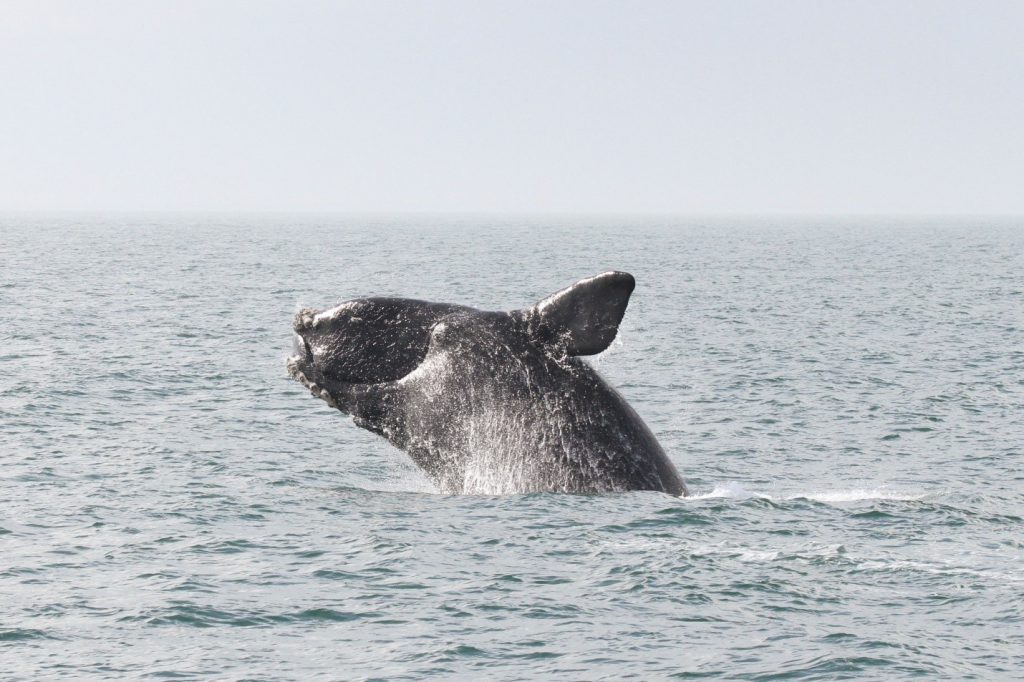
Representatives from several federal agencies met last week to discuss how to reverse the recent decline of the North Atlantic Right whale population.
The North Atlantic Right whale is one of the most endangered of all large whales. Estimates place the current global population at 458 whales, with a consistent decline since the 2010 estimate of 483. This decline and the large number of Right whale deaths documented in 2017 prompted the North Atlantic Right Whale Scenario Planning Project meeting sponsored by NOAA’s National Marine Fisheries Service (NMFS).
NCCOS’s Quay Dortch participated in the meeting, sharing her extensive knowledge on harmful algal blooms and their negative effects on marine animals. Approximately 32 representatives from NOAA NMFS, NOAA NOS, NOAA OAR, the Marine Mammal Commission, USGS, and other federal agencies discussed scenarios to reverse the downward spiral of the North Atlantic Right whale in a changing environment. The group identified climate change, whale entanglements in lobster trap lines and drift nets, and ship strikes as the primary reasons for the decline of the whale population. Harmful algal blooms and oil spills, as examples, are considered episodic threats.
Scenario planning is an effective tool to guide natural resource management decision making in light of short- and long-term uncertainty. The North Atlantic Right Whale Scenario Planning meeting was held at NOAA’s Greater Atlantic Regional Fisheries Office in Gloucester, Massachusetts.
